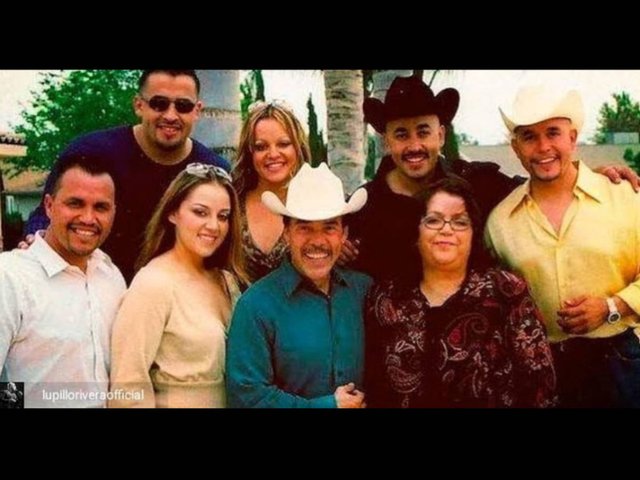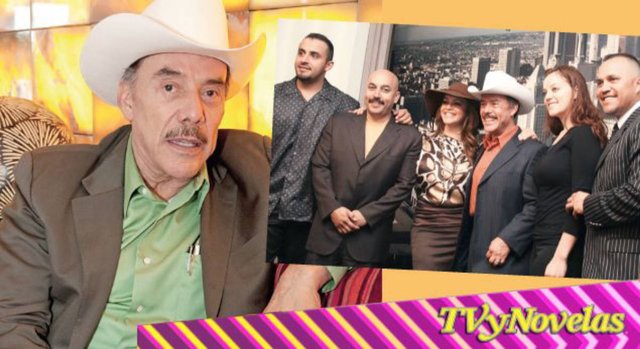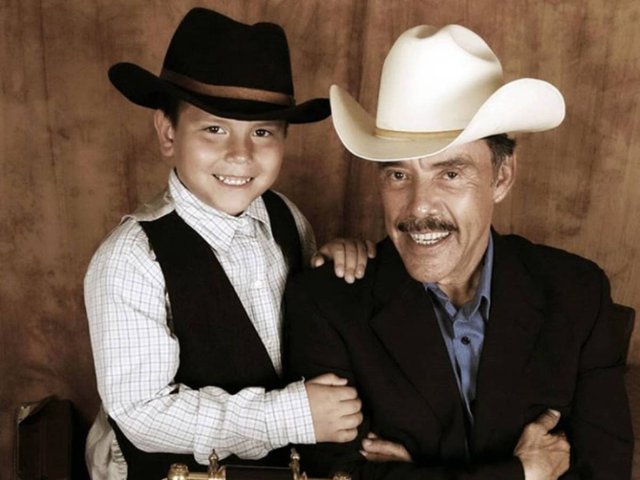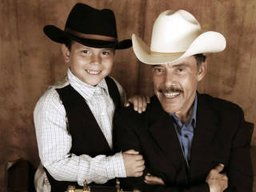Pedro Rivera (patriarch of Corrido)

Pedro Rivera (patriarch of Corrido)

Familia Rivera
Pedro Rivera (patriarch of Corrido) (Born February 23, 1943) in La Barca (municipality) Jalisco Mexico, is a manufacturer of artists and singer of the people, known as the patriarch of Corrido, the legend that revolutionized the record industry in the United States. He is a composer, interpreter, actor, producer and artist manufacturer, a country man who had to emigrate to the United States in 1966, with the certainty that he would progress for a better future for his family.
Career
Pedro Rivera (patriarch of Corrido) With the support of his wife and young children, after selling thousands of iconic buttons from the 1984 Olympics, he managed to raise a respectable amount of money, which he invested in his first production entitled "Voy A Bajarte Una Estrella", accompanied by mariachi.
It has more than 50 productions and approximately 1,590 recorded songs released, under the Cintas Acuario label.
His new productions "Amor de Cuatro Paredes" "Two bottles of Mezcal" (Bachata style) have been widely accepted by the public.
"La Diva de la Banda" and "Jenni mi Bendición" (songs dedicated to his late daughter Jenni Rivera), also among his repertoire are "El Bato Perron" "El Pato Nada", "Dando y Dando" "El Especial.".
Don Pedro Rivera has participated in a number of programs on the large television networks in the United States and Mexico, as a singer and judge of musical varieties.
He made his film debut as a still photographer in the film 'Asalto en Tijuana' in 1984. That same year he ventured as an actor in 'Camino al Infierno', based on a corrido of his own inspiration and starring Jorge Luke, Manuel Capetillo and Mario Almada. It continues with the movie ‘La Tumba del Mojado’, with Rosenda Bernal, Humberto Luna, Miguel Angel Rodríguez and Pedro Infante Jr.
Other titles from his cinematographic period are ‘Verdugo de Traidores’, based on a corrido of his own authorship; ‘La Dinastía de Los Pérez’, filmed in Tepatitlán, Jalisco, next to the Almada Brothers and Emilio Franco; "Las Nieves de Enero", with the first actor Sergio Goyri and Bernabé Meléndrez; ‘The Present Body Mass’, held in Nostitlán, Zacatecas and Aguascalientes; ‘El Fiscal de Hierro’, with Lucha Villa and the Almadas, from which four more feature films emerged, inspired by a moving story that is also written from a corrido of his own.
Career path

Pedro Rivera with perseverance and effort has achieved an impressive career, leaving his mark on the history of the album in 1988, he established his record company with the “Cintas Acuario” label.
With extraordinary vision, he discovered several artists who became true record hits, such as Chalino Sánchez, Los Razos, Graciela Beltrán, El Chapo de Sinaloa, Voces del Rancho, Los Canelos de Durango, Rogelio Martínez and many others who have been forged by his side..
Currently his achievements include his own children united in the Rivera Dynasty, with Jenni Rivera, La Diva de La Banda; Lupillo Rivera, El Despreciado; Gustavo Rivera, The Evil Dear; Juan Rivera, The Abandoned; and his son Pedro Rivera Jr., who developed as a Christian music singer and involved him in the record industry.
Personal


For Don Pedro Rivera, the family, his wife and children, his mother and his brothers, has been a central part of his life.
In this area, the Rivera Dynasty has a strong sense of family unity, based on the principles and Mexican culture, its traditions and its peculiar reasoning of feeling and love.
Don Pedro Rivera was married to Doña Rosa Saavedra as a couple, they had five children: Pedro Rivera Jr and Gustavo Rivera were born in Mexico.
In 1968, doña Rosa crossed the border pregnant with Jenni Rivera (1969-2012), the first to be born in the United States. Then Lupillo Rivera (1972), Rosie Rivera (1981) and Juan Rivera were born. Outside of marriage, Don Pedro had affairs with Erika Alonso with whom he procreated Juan Carlos Rivera in 2002, said deception caused the separation with Doña Rosa. In 2019, he announced his marriage to Juanita Ahumada. [5][6][7][8][9][10]



